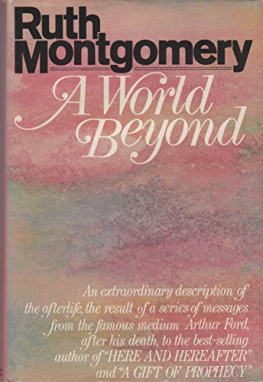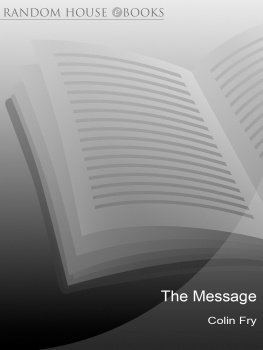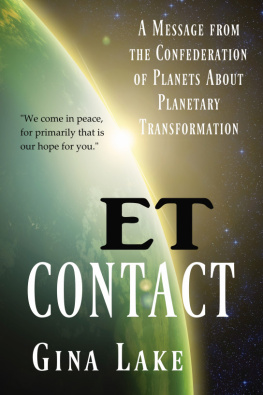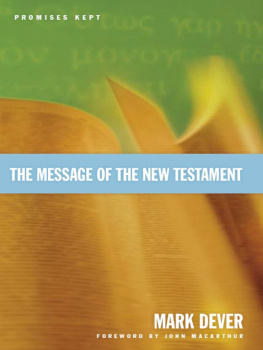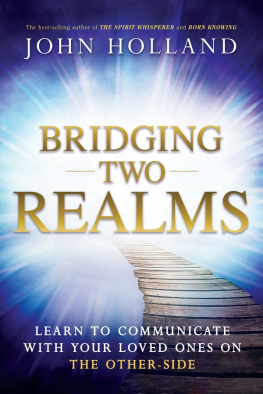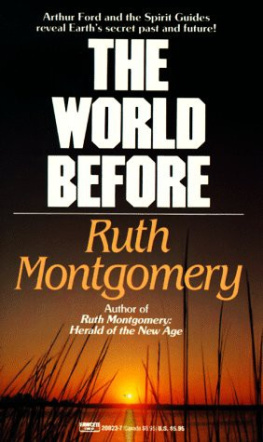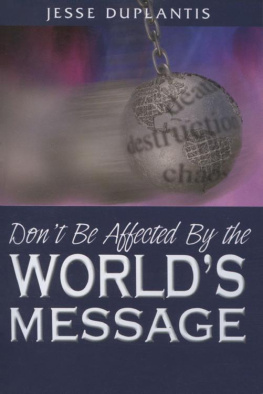Twelfth Impression I SBN: 698-10404-8
Copyright 1971 by Ruth Montgomery
All rights reserved. This book, or parts thereof, may not be reproduced in any
form without permission in writing from the publisher. Published on the same
day in Canada by Longman Canada Limited, Toronto.
Library of Congress Catalog Card Number: 77-154779
Printed in the United States of America
FOREWORD
AUTOMATIC writing is as mysterious as the cycle of birth and death and considerably more difficult to prove. We see a newborn baby and know that it has emerged from its mother's womb. We witness death and are aware that the life force has departed. Nothing remains but an outworn husk, which is cremated or sealed in a tomb. Automatic writing can also be seen, and even read, but the source of its intelligence and the propellant which directs the pencil or typing keys is unperceivable by any of our five physical senses. We know that many books have been written totally by means of this directed force, including the Patience Worth series received by a Midwestern housewife and the fascinating New Testament stories dictated through Geraldine Cummins.
Almost invariably the source claims to be a discarnate who once lived in the flesh, even as you and I. Some of those who doubt the existence of communication between the living and dead argue that the thoughts originate within the subconscious, where our memory bank is stored. Others believe that the messages are imparted by a superconscious, or higher, self which has contact with all knowledge through a sort of all-pervading ESP.
I do not claim to know the answer. I can only attest that the vivid descriptions of afterlife imparted through this book are not products of my imagination or conscious knowledge and that in those instances where assertions are provable, they were totally unknown to me before they came through my typewriter. Here is a case in point:
Dr. I. C. Sharma, head of the department of philosophy at Udaipur University, wrote an airmail letter to me from Udaipur, Rajasthan, India, on March 28, 1971. In this letter he said that he and his wife, Bhag, "had to leave Udaipur suddenly on account of the sudden death of my mother-in-law, Seeta Devi Manuja, who died at Hissar in India," and that they had just returned from the funeral. Knowing that I received automatic writing, he asked if I would try to receive some message that would comfort "dear Bhag."
The morning after Dr. Sharma's letter arrived in Cuernavaca, I asked Arthur Ford if he could give me any information concerning this deceased person, about whom I knew absolutely nothing, and he replied through automatic writing, "We have met and talked to Seeta, who is a lovely soul, bustling with energy and happiness to be here in this beautiful majesty. She loves her family and will not miss them, because she will be with them a great part of the time until they adjust to her physical absence." After several other personal comments about her, Ford wrote, "She asks that they remember a little blue flower that she particularly liked and to think of her when they see it, for she will be there too. Seeta, Seeta, Seeta. She is very like her name, which means flower of heavenly wonder' in this place of enduring life."
I had never before heard the name Seeta. I did not know if blue flowers even bloom in such a place as Hissar, which I had not known existed. I knew nothing about the interests of Mrs. Sharma's mother and therefore felt reluctant to transmit such a message to the head of a philosophy department in a faraway land, but I finally did so.
Under date of April 29, 1971, Dr. Sharma wrote again from Jodhpur, where he was assisting with university examinations.
"Every word of the communication by Arthur Ford was correct," he wrote. "The blue flower was not known to me. But [my father-in-law] told me that during the last six months of Seeta's stay in the world, she had taken a fancy to flowers, particularly some blue flowers that grow in their courtyard, which she cultivated and used to decorate the living room with them. So her reference to liking the small blue flower was revealing for dear Bhag. It has given her great consolation."
Inasmuch as neither Dr. Sharma nor his wife knew of Seeta's recently developed interest in blue flowers until they checked after receiving my letter, and I had been unaware that Mrs. Sharma's parents were still living until his letter reported Seeta's death, I could not have gleaned this information through any normal type of mind communication. Surely the more rational explanation would be that Arthur Ford had contacted Seeta on "the other side" and had passed along a particular piece of information which would seem evidential to her daughter and son-in-law.
This book I believe to be Arthur Ford's own account of life in the next stages of existence beyond the portal that man calls death.
I Arthur Ford Lives
TH E strident ring of the telephone roused me to reluctant consciousness. Wrong number, I decided drowsily, on noting that dawn was just beginning to break. I snuggled more deeply into the pillow, seeking to recapture an elusive dream, but the phone continued its shrieking protest, and at last I clutched for its raucous throat. A familiar voice at the other end of the international hookup said, "Ruth, this is Marianne Wolf in Philadelphia."
"Arthur is dead," I thought dully, and even as my heart turned to lead, Marianne continued. "I'm sorry to awaken you so early, but I wanted you to know before hearing it on the radio. Arthur Ford passed on early this morning in Miami."
Arthur Ford dead! It was too soul-shattering to contemplate. At that moment the top memo on my desk read, "Write Arthur." The day before I had tried to telephone him, only to find that I had misplaced the unlisted number of his new house in Florida. Two months earlier, while on a promotional TV tour for my latest book, I returned to the hotel in New York City to find a message, "Call Arthur Ford, no matter how late the hour." It was then nearly midnight, but I called him in Miami and we had a wonderful visit together. He had heard reports of my speech the evening before at New York's Universalist Church and was pleased that I had highly praised him. He was feeling well and planning a lecture tour. It was the last time that I would hear his voice.
And now, a world without Arthur. It was January 4, 1971, and throughout that long day I mourned his passing. I remembered how much he had wanted to move with us to Cuernavaca, Mexico, when Bob and I decided to do so in 1969. Much as we would have loved to have him as a neighbor, we advised against it. The mile-high altitude might have an adverse effect on his heart, and the nearest hospital was fifty miles away in Mexico City. He therefore settled in Miami, to be near the heart clinic where he so often needed treatment. Now he would suffer no more from the excruciating attacks of angina pectoris, but selfishly I wanted him back. I had loved him as a father for a dozen years, and it was through Arthur's trance sittings that I first seemed to recapture the closeness with my own father, when he made his appearance through Fletcher, Ford's otherworld control.

